 I’m so excited to interview John Locke, a NY Times best-selling author who was the first indie author to break the million ebook sale mark on Amazon and who has been an inspiration for many in the indie movement!
I’m so excited to interview John Locke, a NY Times best-selling author who was the first indie author to break the million ebook sale mark on Amazon and who has been an inspiration for many in the indie movement!
Fun facts about John
(that I stole from his website http://Donovancreed.com):
*8th member of the KINDLE MILLION SALES CLUB!
*First self-published author to hit #1 on Amazon/Kindle!
*First self-published author to hit Kindle Million Sales Club!
*John sold 1,100,000 eBooks in 5 months by word of mouth!
*John wrote and published 6 best-selling books in 3 separate genres in 6 months, part-time!
*John has had 4 of the top 10 eBooks on Amazon/Kindle at the same time, including #1 and #2! He’s also had 6 of the top 20, and 8 of the top 43 at the same time!
*Every eBook John Locke has written and published has become a best-seller.
*8 authors in history have sold more than 1 million eBooks on Kindle. They are: John Locke, Stieg Larsson, James Patterson, Nora Roberts, Charlaine Harris, Lee Child, Suzanne Collins and Michael Connelly.
Thanks, John, for taking the time to answer some questions today. These are some impressive numbers! A lot of people got very fan-girl (or fan-boy?) like when I spilled the beans about my interview with you, so I can’t take credit for all of these questions. I also am not going to ask everything they suggested… quite frankly because I would be too embarrassed by their suggestions… (Emlyn, I’m totally talking about you here…)
But I know we are all dying to pick your brain about how to make it big as indie authors. I work for Novel Publicity to help authors publicize their books. I’m also the Marketing Director for Evolved Publishing, a publishing company with a new never-before-seen business model for cooperative publishing between authors and publishers, and so I’m always looking for ways to not only sell my own books, but to help other authors sell theirs.
I’ve read your book “How I Sold 1 Million eBooks in 5 Months!” and I’ve also read much of your fiction work. I know in your book you talk about the power of twitter and blogging for selling books. I have to ask though, what’s been your most effective marketing tool so far?
JL: My ebooks, because they link enthusiastic readers to my other books, my website, my OOU thread, and my blog.
I’m noticing that the 99cent price point is no longer as effective as it once was, with so many indie authors now publishing and competing for reader attention. It also seems that social media is losing some of its effectiveness. There’s so much white noise out there as the sea of indie authors grows.
JL: People have always given my 99 cent price more credit than it deserves. They forget my ebooks have always been 99 cents, even the first 8 months when I made virtually no sales. Part of the confusion stems from a guest post I did with Joe Konrath last year, where Joe remarked he experienced an increase in sales after dropping his price from $2.99 to 99 cents. The quote was erroneously attributed to me, and continues to crop up in articles.
As for social media losing its effectiveness, I think this only applies to “short-view” authors whose immediate focus is more on sales than building long-term customer relationships. These people believe marketing is a constant “buy my book!” message. They’re relentless, needy, and in your face, like the politicians who saturate our TV’s with one ad after another. People don’t mind the occasional ad. But this constant “Buy my book!” message drives customers away. I don’t like in-your-face selling, and I think most readers feel the same way. Authors would do well to remember selling is an art, and buying is a choice. I’m not going to buy your book just because you want me to. Give me a reason why I should buy your book. And that reason needs to be better than whatever else I could do with my money today.
Do you think your methods as outlined in your book are still relevant for new authors?
JL: As outlined, absolutely. But what hundreds of authors seemed to come away with was copying my blog posts. This didn’t work for several reasons. One, the point of my blog is to showcase my style of writing. Two, when everyone writes the same types of articles, they become less effective. Three, readers can smell insincerity a mile away. Authors need to view my posts as examples of what worked for me, and be creative with their own, in a way that showcases their unique style. If I include a picture of my wife in my next post and tell readers she inspired one of my characters, readers might love it. But if you show a picture of my wife you’re not going to get the same reaction. My posts should be used as a guideline, not a template.
Do you see the tides changing for marketing strategies?
JL: Not necessarily. There have always been a hundred paths to marketing success, and that hasn’t changed. There is no “one size fits all,” and every author needs to focus on what they do best. But if your book is unique, and original, you’ll eventually find your target audience.
What would you recommend for new authors coming in?
JL: The best way to market a book is to know your target audience before you start writing. Write only to them, and publish the book they want to read.
What are your thoughts about KDP Select and the FREE day promos?
JL: I would have participated in the KDP Select if I had a more expensive ebook available at the time. I simply didn’t believe the members would choose my 99 cent book over a $12.95 book because the perception of value works against me. As for free promos, I don’t offer them. My books are only 99 cents, and readers get a free look inside. That’s close enough to free for me.
Do you think the free days Amazon is offering will lose their effectiveness once more writers sign up?
JL: I don’t know enough about it to offer an opinion. But I’ve always believed if you put the readers first, success will follow.
What do you consider a good release schedule for new titles? Once a month? Less? More?
JL: I don’t think there’s an ideal schedule. Authors should write the best book they can, and bring it out the moment it’s ready.
I’m so excited about the print distribution deal you have negotiated with Simon & Schuster. Can you tell us how that deal came about?
JL: The distribution deal with Simon & Schuster was the logical response to my unique situation. I was sitting on a best-selling series but didn’t want to sell the rights, and Simon & Schuster has the world’s greatest distribution system! I’m the chocolate, they’re the peanut butter. We simply put the two together!
Do you think publishers are softening to alternative contracts with authors?
JL: I think other publishers will see what happens with Wish List. If this works, I believe there will be many more opportunities for self-published authors to do something similar.
How can we support you in making this a success?
JL: If I said “Run over to Barnes & Noble or Wal-Mart and buy five copies of Wish List!” I’d be doing the same thing I’m advising other authors not to do. Yes, buying my books will prove to publishers and retailers that self-published authors belong on bookstore shelves. But we only belong if our books are worth buying! In other words, I don’t want anyone buying my books because it’s a good cause. I want you to buy because it’s a great book!
Tell us about Wish List.
 JL: The Donovan Creed series is currently nine books, and Wish List was book #5. Why not start with the first? Because Wish List stands on its own. It’s a perfect representation of the Creed series, which means it’s funny, terrifying, crazy, and you won’t be able to put it down.
JL: The Donovan Creed series is currently nine books, and Wish List was book #5. Why not start with the first? Because Wish List stands on its own. It’s a perfect representation of the Creed series, which means it’s funny, terrifying, crazy, and you won’t be able to put it down.
It’s the story about what happens on a lazy Sunday afternoon when three underachievers are sitting around in a basement, smoking pot. A question is raised: “If you could have any wish in the world, what would it be?” –See, the guys have stumbled upon a website that offers to make your wishes come true. Buddy Pancake, the lovable loser with the beautiful wife and the dead-end bank job, allows himself to dream big for just a few minutes. He signs up. Amazingly, his wishes start coming true. Unfortunately, he clicked “I agree” without reading the fine print explaining there’s a price to be paid for the wishes. Turns out some very scary people are enforcing the agreement. You think you see where this is going, but it’s not what you think. Wish List is half rocket ship, half roller coaster, and of course, all Donovan Creed. I hope you enjoy reading it half as much as I enjoyed writing it.
What are your predictions for the next year? What changes will we see in the industry and how can new authors position themselves for the best success?
JL: I think we’ll see more distribution deals between publishers and top-selling indie authors. Hybrid deals, based on the degree of risk each party is willing to assume.
Which is better, do you think–more books or more marketing?
JL: More books. There’s not much point in building a demand for ice cream if you’re not going to supply me in the future.
You are one of the most approachable writers ever. How do you balance staying connected with your readers and yet manage to get so many books written so quickly?
JL: The truth is I wish I could pay more attention to my readers. I try, but there are only so many hours in the day. If I focus on Twitter, I neglect Facebook. If I focus on Facebook, I neglect Twitter. The more time I spend responding to emails, the less time I have for my blog responses. By responding to blog comments, I neglect my “Contact Me” responses! Interviews and guest blogs take time away from my writing. If I concentrate on writing, I neglect all the rest! There’s only so much I can do, but it’s clear I owe my readers far more than I give. Thankfully, they’re a forgiving bunch…as long as I keep writing!
If Amazon wanted to publish all of your books through their imprint, would you do it? Do you see them as more appealing than legacy publishers, or would you continue to self publish?
JL: Amazon has never offered me the opportunity, so it may be I’m not a good fit for them. In any case, I couldn’t do the Creed books with them at this point, because of my distribution deal.
What’s the most important thing you do every day that has brought you success?
JL: For me it’s a series of things. I stay in motion and don’t take myself too seriously. I remain open-minded and humble and live life believing we’re all a single phone call away from a life-changing event. The call can be something great, or something devastating. But no one is immune to that phone call. When mine comes, I want to be as prepared as possible. I think this mindset keeps me busy, appreciative, and humble.
Okay, so I’m a first time writer with a really good book, a new release. What is the number one best thing I can do to get my name out there, if I’m only allowed one?
JL: This really depends on what type of book and what type of audience. And I would never allow myself just one avenue. But I see where you’re going with this, and can think of several great things to get your name out into the world. Two I could mention are things I’ve already got in place, so it would defeat the purpose to share those. But here is one that would certainly work:
If I had cash on hand, I’d contact a successful author with a similar book and offer to pay her to place a link to my book at the back of hers. If I didn’t have cash on hand, I might offer her a percentage of all sales made during the first month. Of course, I’d offer to put an ad for her book in the back of mine, as well. I’ve never done this, though many authors have asked me to trade links. Did I do it? No. I declined. But only because no one gave me a compelling enough reason to do it!
Is Amazon the gorilla in the room no one wants to argue with? Do you think that will become a problem for writers down the road–trading the bullies of legacy publishing for one single giant bully who has control over everything?
JL: I don’t see publishers as bullies or adversaries. Every successful person or company has a reason for their actions, and the publishing houses and electronic platforms are no different. They aren’t in business for my convenience, nor are they in business to limit my success. They’re in business to make money. In the final analysis, companies make money by providing goods and services people want to buy at a price they can afford. Fail to do that and it’s over. What I’m saying, it doesn’t matter which company thinks they’re in charge. Because the consumers are always in charge!
If authors need to prepare for one major change in publishing, I think it will be to put the idea of “the big advance” behind them. I think legacy publishers will have to stop fronting money to authors, and devote fewer dollars to marketing. They’ll give authors a bigger share of profits in return for lower acquisition costs. And I think this will be a good thing for authors and publishers alike. Think how many more books could be traditionally published each year if publishing houses could eliminate their acquisition costs and reduce their marketing expenses! And of course, this would result in lower book prices, which benefits the readers.
Is print really that important right now with not only the rise of ebooks but the new content we can now add to books we sell, like trailers, videos, extras?
JL: It’s certainly important to me! Print may not be what it once was, but it’s still a huge market, and one that’s predominantly adverse to using electronic reading devices, at least for the time being. By tapping into that market now, I’ll have the opportunity to attract a whole new group of fans. If some switch to ebooks, they’ll already know me, and will likely buy my ebooks. Those who refuse to go electronic will remain a captive audience for my future paperback releases. Either way, paper books will help me expand my market.
Some authors have attributed your success on coming into the game with a lot of money to spend on marketing, but you make it clear in your book that those marketing endeavors weren’t successful. As a business man, are your results reproducible for anyone?
JL: For unknown authors, selling books is about the books. The best marketing system in the world won’t move a lousy book unless people are buying the name on it. Kim Kardashian could put her name and photo on a phone book and sell a million copies. But you and I aren’t Kim Kardashian. The first book I wrote was dreadful. I didn’t even try to market it. I threw it away and started over. But to answer your question, if your book is unique, and well-written, there will be an audience for it, and yes, my system will help you find that audience.
I know we are all wishing you the best of success in your print deal. What else are you working on right now and which books are you most excited about?
JL: I’ve got three projects in mind. One is the sequel to Call Me! Another is the10th Donovan Creed adventure. The third is one I’m currently most excited about. This is a new character, a surgeon, who could wind up heading a new series for me.
For someone not familiar with your fiction, which book do you recommend as a first read? (I started with Call Me!, and loved it!)
JL: I’m so happy to hear you enjoyed Call Me! That was a lot of fun for me, writing from a female point of view. But I would recommend Wish List for the same reason I recommended it to Simon & Schuster. It’s wild, and highly representative of the Creed series. It’s also currently available in Barnes & Noble in paperback for only $4.99, and in Wal-Mart for only $3.74, if you can just imagine!
Having said that, my personal favorites are my westerns, which must be read in order: Follow the Stone, Don’t Poke the Bear! and Emmett & Gentry. These are not your grandfather’s westerns. They’re outrageous and fun and full of heart. The westerns can be downloaded for only 99 cents.
Is there anything else you can share that you think would help new authors, or be of interest to your readers?
JL: My best advice for self-published authors is something they hate to hear. But I strongly believe you should hire a professional editor before putting your ebook out into the world. If your book is filled with errors, you can’t expect people to take your work seriously enough to recommend it to others. My other advice would be not to edit or constantly review your manuscript until you’ve finished writing it. Because if you try to make it perfect, you’ll never complete it.
Thank you, again, for taking the time to answer so many questions and share about your journey.
JL: My pleasure, Kimberly! Thank you so much for giving me a chance to connect with your readers!
To learn more about John Locke, visit his website at DonovanCreed.com, Follow him on Twitter @DonovanCreed or like him on Facebook.

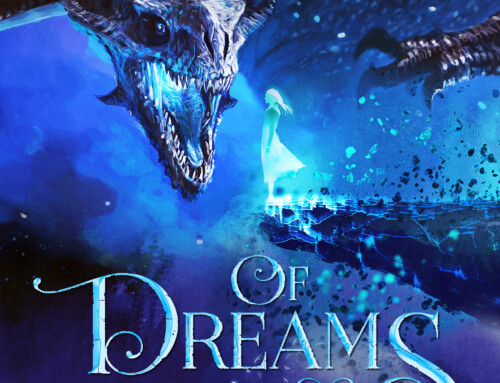
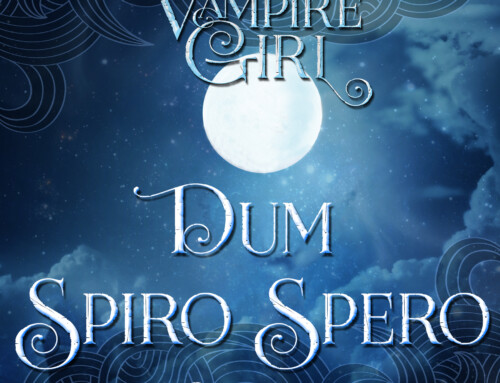
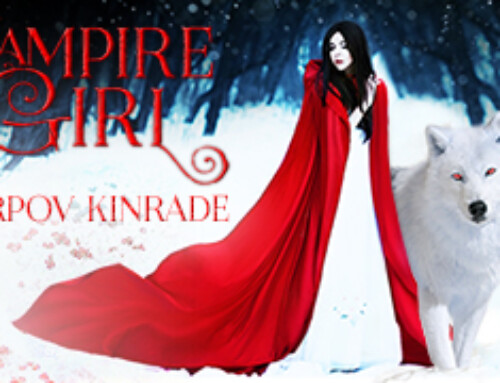
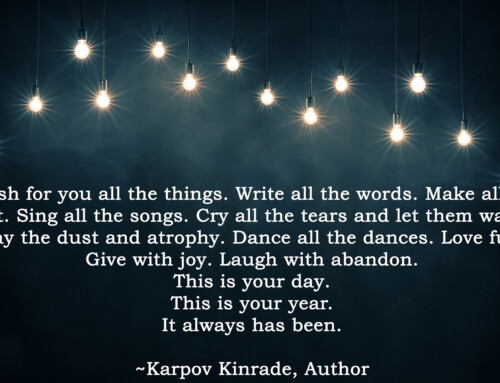
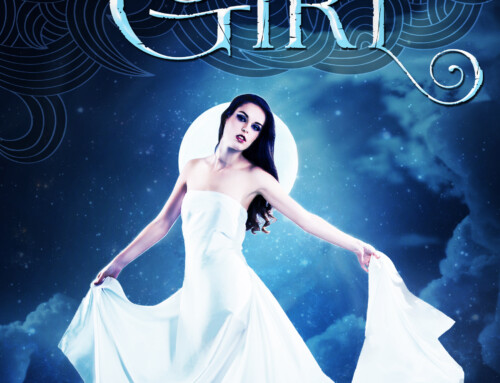
Wow, Kimberly. I’m so happy I stopped by to read your interview with John Locke. I want to read his novels now. That’s the sign of a wise person, someone who understands the writing life and tries not to let the little parts overwhelm him.
Thanks, justin! I really enjoyed the books I’ve read of John Locke’s. He was also very generous with his time in doing this interview! Let me know what you think of his books.
Fantastic interview–thank you for sharing this with us, Kimberly! I love how approachable Mr. Locke seems to be and how honest. His success is a morale boost for all of us. Great questions, informative answers. Awesome!
Thanks Patti! And, well, I did have some help with the interview questions 🙂
What a fantastic interview! Very informative, and like Justin said, I want to read Mr. Locke’s books now! 🙂
I agree whole-heartedly with his point on editing – so many people put out books that haven’t been edited, and I think that’s why there’s still a stigma attached to indie publishing. I’ve done a lot of exchanges with other authors – you review my book, I’ll review yours – and it’s painful to see the number of mistakes in the books…and you know that most readers these days are smart enough to pick up on those errors. It doesn’t seem to bother some of them, but it sure bothers me! Makes the editor in me itch to bring out the red pen lol.
Anyway, thanks for this great interview!
Thanks Marie. I agree, editing is critical! He was a blast to interview and I’ve really enjoyed the books of his that I’ve read. Let me know what you think!
Good stuff. The message seems simple enough: quality and quantity. Give readers value. Perfect!
Perfect indeed. And I totally agree with the editor thing. 🙂
A great interview, but I’ve lived the “John Locke” way for six months and I sure don’t have anywhere near the success (far from it). So obviously it is not or does not work for everyone. Or, my writing sucks (and I know better than that!)!
Just keep trying. . .
Thanks for coming by. I do hope you find a way that works for you! We are all navigating our way through this new terrain. 🙂
Entertaining and informative interview. Thank you, Kimberly. John Locke is always a pleasure to read, and your timely questions focused the conversation in areas from which all writers can benefit. Well done. I look forward to reading more of your interviews. 🙂
Cat
Thanks Cat! I don’t do interviews often, but I try to make them count when I do them. 🙂
Thank you for sharing this fantastic interview with John Locke. There is a wealth of insight and honesty in his answers that we can all learn from and apply. I thank him for his shout out to the editors!
Thanks for coming by Melissa. I really enjoyed interviewing him! 🙂 And yes, great editors are worth their weight in gold!